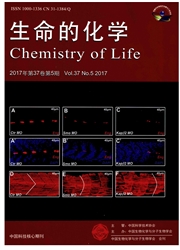
欢迎您!东篱公司
退出

 中文摘要:
中文摘要:
精子发生过程中,核心组蛋白N末端区域的某些赖氨酸残基会发生可逆乙酰化。真核细胞中最保守的核心组蛋白H4的乙酰化只限制在四个赖氨酸上(残基5、8、12和16)。研究精子发生过程中乙酰化组蛋白H4,阐述其在组蛋白沉积、基因转录及组蛋白取代等事件中的分子机制,可为进一步研究精子发生的调控机制提供理论依据。
 英文摘要:
英文摘要:
During spermatogenesis, the N-terminal domains of core histones are subject to reversible acetylation at certain lysine residues. The acetylation of H4, the most conservative core histone in eucaryotic cells, is restricted only to four lysines (residues 5, 8, 12, and 16). Studying the changes of acetylated H4 during spermatogenesis may make insight to its molecular mechanism during histone deposition, gene transcription and histone displacement, providing some theoretics about regulation for spermatogenesis.
 同期刊论文项目
同期刊论文项目
 同项目期刊论文
同项目期刊论文
 期刊信息
期刊信息
